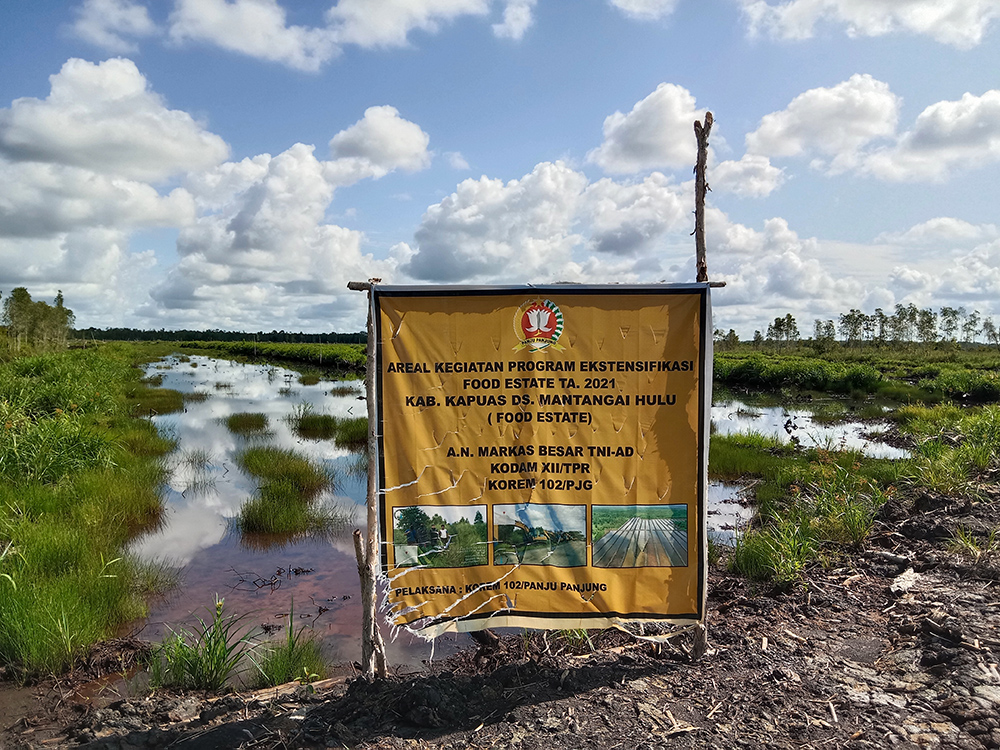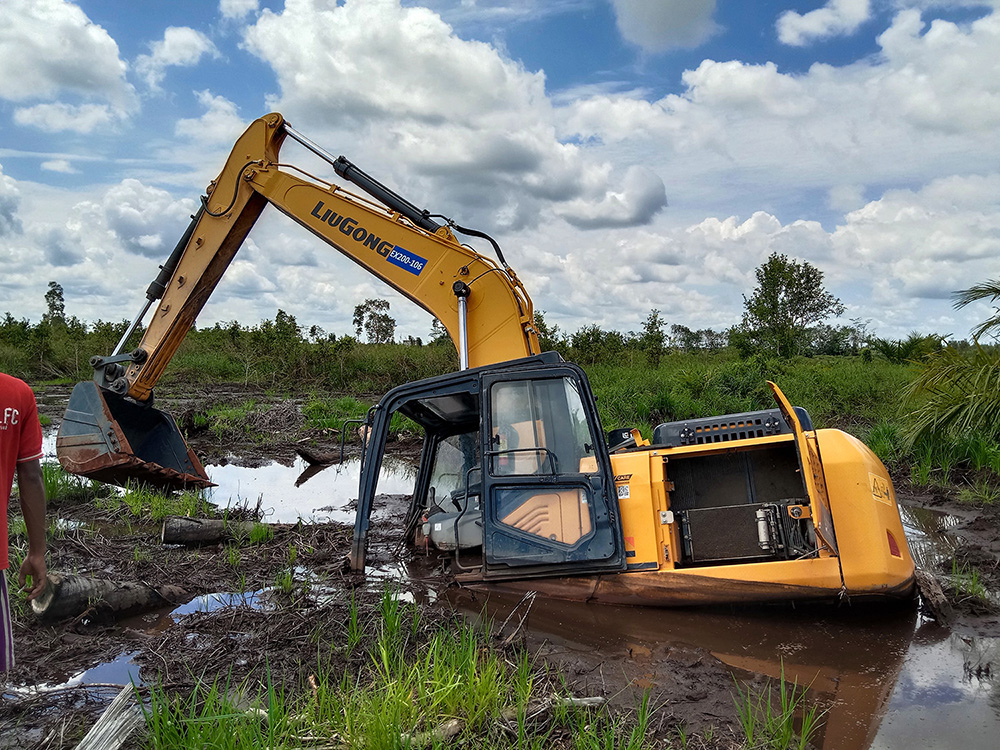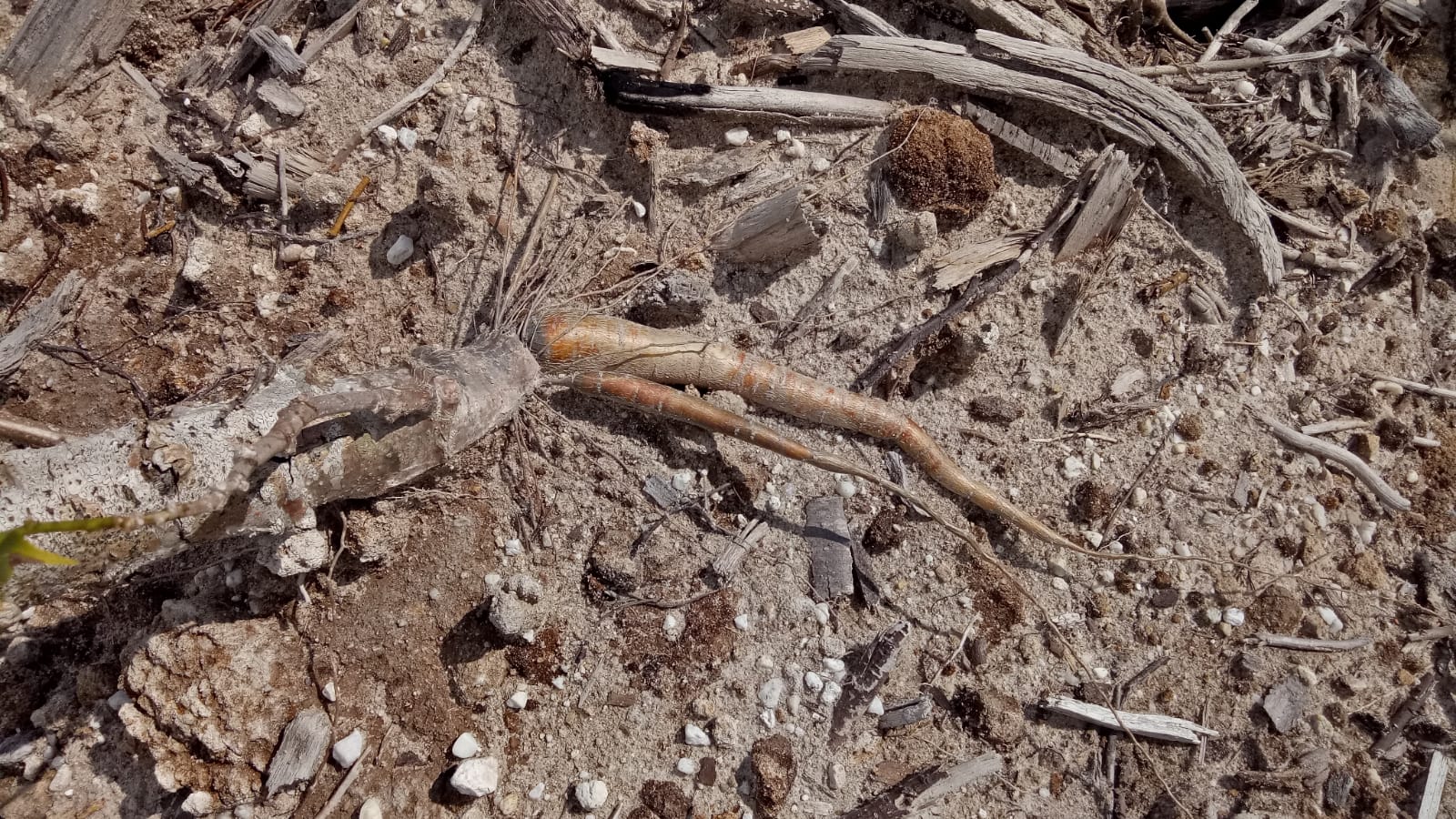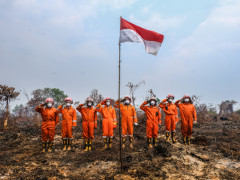Independence Day Under Smoke: 13,000 Fire Hotspots Detected
By AdminChapter 2: Updates After Two Years on the Central Kalimantan Food Estate Project.
![[Left to right] Quin Pasaribu (BBC News Indonesia), Agiel Prakoso (Pantau Gambut) dan Janang Palanungkai (WALHI Kalteng) gave a presentation on ©Pantau Gambut](https://en.pantaugambut.id/images/original/widget/photo1678861271-RrTMd.jpg)
This statement was obtained through written correspondence provided to BBC News Indonesia during joint investigation conducted by Pantau Gambut, WALHI Central Kalimantan, and BBC News Indonesia to examine the dynamics occurring at the Food Estate location in Central Kalimantan. The subsequent study, titled Chapter 2: Update on the Food Estate Project in Central Kalimantan after 3 Years, was released by Pantau Gambut. Some important points from the study include the following:
-
Submersion of excavator in peatland
During satellite imaging analysis conducted in Mantangai Hulu village, it was discovered that approximately 237 hectares of forest land surrounding the verification point for land extensification had been cleared. At the exact location, the team also found heavy equipment in the form of an excavator submerged in the peatland surrounding the extensification area due to the peatland's characteristic inability to support the weight of the excavator itself.
- Failure of harvest yield
A successful rice harvest should ideally produce a minimum of 4 tons per hectare. This statement contrasts with the claim made by the Ministry of Agriculture that the productivity of unproductive paddy fields in Central Kalimantan reached 3.5 tons of milled rice per hectare in 2021 through intensive farming techniques [1]. In Tewai Baru village, the resulting cassava tubers are small, similar to carrots, yellow like turmeric, and bitter to the taste. Research shows cassava's bitterness indicates a high cyanide content [2]. - Mismanagement of the government budget
In Henda and Pilang villages, the government-provided water pipe assistance could not be utilised by farmers due to a lack of follow-up funding for maintenance and guidance on how to use the equipment, making it difficult for farmers to use the tool. However, Rp1.5 trillion from the national budget was allocated for implementing the Food Estate program in 2020-2021, of which Rp497.2 billion was allocated for irrigation improvements, including the procurement of water pipes. - Deforestation
The implementation plan for the first phase of the Food Estate in Central Kalimantan in 2020-2021 covered an area of 31,000 hectares, with 10,000 hectares each in three districts, namely Pulang Pisau, Kapuas, and Gunung Mas. Monitoring through satellite imagery showed deforestation, with an area of 700 hectares in Tewai Baru village being the largest extensification area.
From a landform perspective, Tewai Baru village is part of the plain fluvial ecoregion of Kalimantan with alluvial soil that has a sandy texture. The characteristics of this type of soil have a high potential as a water management system due to its ability to absorb and release water easily. However, the loose soil layer is prone to erosion, which causes runoff carrying soil material, leading to sedimentation in water channels, narrowing or blocking water channels, and causing floods in surrounding areas.
[1] Jawaban Kementerian Pertanian Soal Masalah Proyek Food Estate - koran.tempo.co
[2] Cyanide in Cassava: A Review - gavinpublishers.com






